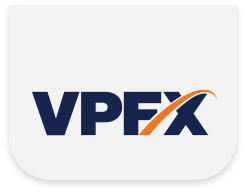A white label trading platform is a software solution provided by one company (the “software provider”) to another company (the “broker”) that allows the broker to rebrand and resell the software as their own to their clients. The broker typically sets their own pricing and retains all client relationships, while the software provider handles the underlying technology, security, and maintenance of the platform. This allows the broker to offer a white label trading platform without the significant investment required to develop one in-house. Thus, below are some of the benefits of white label trading platforms.
- Branding and customization: White label trading platforms allow businesses to fully customize and brand the platform to match their existing branding and aesthetic. This can include custom logos, colour schemes, and even custom features to match the specific needs of the business. For example, a business can have a unique platform look and feel, unique branding, unique names for the products and services offered, and different language options to appeal to a broader audience. This allows businesses to create a unique and differentiated trading experience for their clients, which can help to attract and retain customers.
- Cost savings: Developing and maintaining a trading platform from scratch can be a costly and time-consuming endeavour. White label broker forex platforms allow businesses to save on these costs by using an existing platform and simply branding it as their own. This can include licensing costs, development costs, and ongoing maintenance costs. By using a white label trading platform, businesses can avoid these costs and focus on growing their business.

- Quick launch: Since white label trading platforms are pre-built, businesses can launch their trading platform much quicker than if they were to build one from scratch. This can be especially beneficial for businesses that are looking to enter the market quickly. By using a white label trading platform, businesses can launch their trading platform in a matter of weeks or months instead of the several months or even years it can take to build one from scratch.
- Access to a wide range of assets: White label trading platforms typically offer access to a wide range of assets, such as stocks, bonds, commodities, and currencies. This can provide businesses with a diverse range of trading options to offer their clients, which can help to attract and retain customers. Additionally, offering a wide range of assets allows businesses to diversify the risk for their clients and cater to a wider range of investors.
- Advanced features and functionality: Many white label trading platforms come with advanced features and functionality, such as charting and analysis tools, automated trading strategies, and risk management tools. These features can help businesses to provide a more advanced trading experience for their clients, which can help to differentiate them from their competitors. Advanced features can also help businesses to attract more experienced traders, which can increase revenue.
- Scalability: White label trading platforms are typically built to handle large amounts of the trading volume. This means that businesses can start small and scale up as they grow without having to worry about the platform being able to handle the increased volume. This scalability allows businesses to grow their trading volume and revenue over time while still maintaining a stable platform.
- Support and maintenance: The best white label trading platform typically comes with a level of support and maintenance from the platform provider. This can include assistance with troubleshooting and bug fixes, as well as regular updates to ensure that the platform stays up-to-date and in line with industry standards. This support and maintenance can help businesses to keep their platform running smoothly, which can help to attract and retain customers.
- Compliance: White label trading platforms are typically compliant with relevant regulations and standards. This can help businesses to avoid costly fines and penalties that can result from non-compliance. Additionally, compliance can help businesses to establish trust with their clients, which can help to attract and retain customers.
- Flexibility: White label trading platforms are typically highly configurable, which allows businesses to tailor the platform to their specific needs. This can include customizing the user interface, adding new features, and integrating with other systems. This flexibility allows businesses to create a unique and differentiated trading experience for their clients, which can help to attract and retain customers.
- Competitive advantage: Using a white label trading platform can give businesses a competitive advantage in the market. By using a pre-built and customizable platform, businesses can launch their trading platform quickly and at a lower cost compared to building one from scratch. Additionally, the advanced features and functionality offered by white label trading platforms can help businesses to provide a more advanced and differentiated trading experience for their clients, which can help to attract and retain customers. Furthermore, businesses can leverage the compliance, support, and scalability offered by white label trading platforms to maintain a stable and secure platform, which can help to establish trust with their clients and further differentiate themselves from their competitors.
- Increased efficiency: White label trading platforms are designed to be user-friendly and easy to navigate, which can help to increase the efficiency of the trading process. This can include intuitive user interfaces, streamlined navigation, and advanced automation features that can help to streamline the trading process and reduce the time and effort required to execute trades. This increased efficiency can help businesses to attract and retain customers by providing a more seamless and efficient trading experience.
Thus, white label stock trading platform are important because they allow smaller companies, such as brokerage firms, to offer their clients a comprehensive and professional trading experience without the need for significant investment in technology and development. This can be especially beneficial for new or smaller firms who may not have the resources to develop their own trading platform. Additionally, white label platforms can be customized to the broker’s specific needs, allowing them to differentiate themselves from competitors and offer unique features and services to their clients. Furthermore, the software provider typically handles the technical aspects of the platform, such as security and maintenance, which can free up the broker to focus on other aspects of their business.
Overall white label trading platform can be a cost-effective solution for companies looking to offer trading services to their clients.





